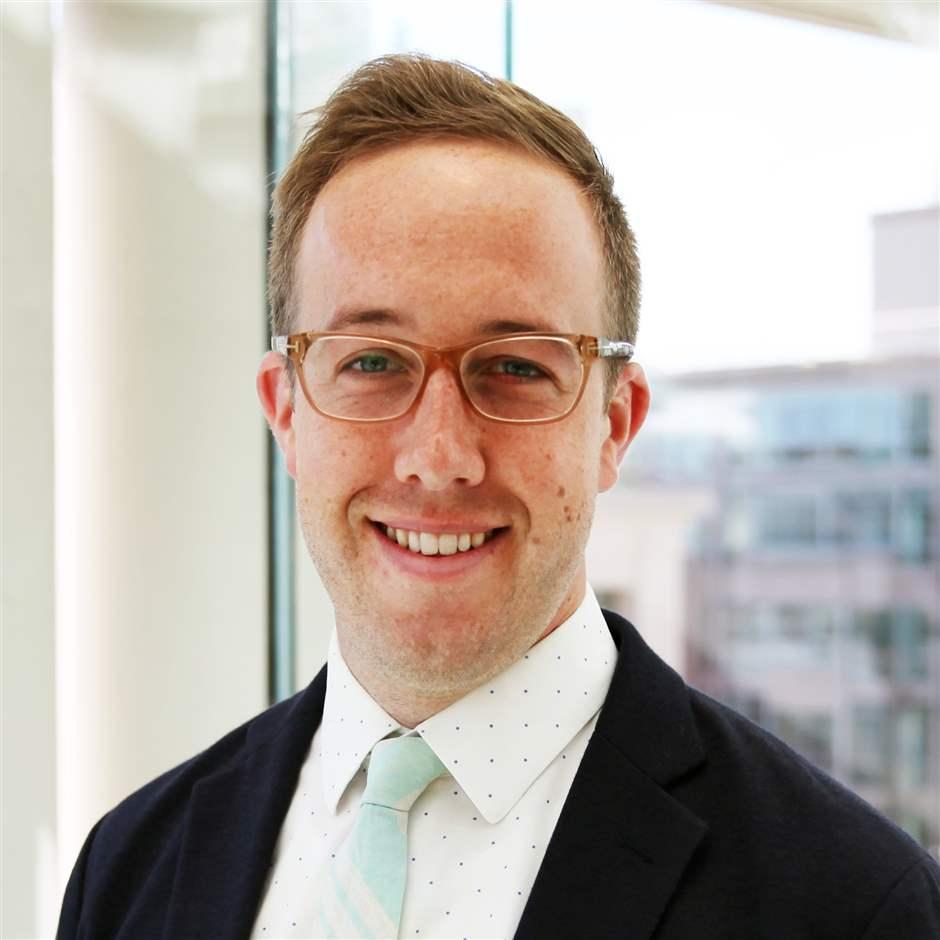
Zach Bartscherer Senior Officer
Zach Bartscherer focuses on connecting state and federal policymaking processes on disaster resilience, energy modernization, and climate adaptation. In this role, he engages policymakers and stakeholders to secure commitments for clean energy and mitigation funding and to help states develop comprehensive resilience plans and strategies to transition to renewable energy. Before joining Pew, Bartscherer worked with corporate and nonprofit clients to build advocacy and business development strategies around international technology, environmental, and health care priorities. Earlier in his career, he developed policy advocacy and communications campaigns in multiple industry sectors. Bartscherer holds a bachelor’s degree in economics from American University.
John Begala Officer
John Begala is an officer on Pew’s energy modernization project, advancing state and federal research and policy that supports large-scale energy to meet increasing demand.
Read MoreCourtney Durham Shane Senior Officer
Courtney Durham Shane works on energy and conservation policy across sectors and political perspectives at the subnational, national, and international levels, in support of practical, durable solutions. Her background includes work with governments, development banks, and civil society to design and implement policy, strengthen institutions, and engage a broad range of stakeholders.
Read More
Leah Ford Senior Associate
Leah Ford works on the state policy and campaigns portfolio of Pew’s energy modernization project, where she works with state and federal policymakers to modernize the grid to meet increasing energy demand. Prior to joining Pew, Ford was a policy adviser at E3G, a global climate think tank, where she created a network of leaders and stakeholders in legacy coal states to promote economic diversification and a transition toward clean energy. She also previously worked as a researcher at Food & Water Watch. Ford has bachelor’s degrees in public policy and in global studies from the University of North Carolina at Chapel Hill and a master’s degree in public health from the Johns Hopkins Bloomberg School of Public Health.
Carter Harms Officer
Carter Harms helps lead Pew’s energy modernization project, working with state and federal policymakers to modernize the grid to meet increasing energy demand.
Read MoreLaura Lightbody Director
Laura Lightbody directs Pew’s energy modernization project, which works with state and federal policymakers to modernize the grid to meet increasing energy demand.
Read MoreYaron Miller Senior Manager
Yaron Miller leads the state policy and campaigns portfolio of Pew’s energy modernization project, which works with state and federal policymakers to modernize the grid to meet increasing energy demand.
Read MoreMaureen Quinlan Senior Officer
Maureen Quinlan leads Pew’s work to decarbonize the grid, including research on the economic and social impacts of carbon reduction policies. She also serves as a subject matter expert with policymakers and stakeholders. Quinlan’s efforts inform clean power and transportation policy and regulatory development and strategy at the federal and state levels to bring more renewable energy to the U.S. grid.
Read More
Brian Watts Officer
Brian Watts works on Pew’s efforts to improve community resilience to natural disasters and accelerate the transition to renewable energy by advocating for federal and state policy change. Watts has expertise in researching the impacts that poor planning, natural disasters, and climate change have on disadvantaged communities. He previously worked as a consultant for the Department of Homeland Security on policies supporting U.S. Customs and Border Protection. He has also taught English in South Korea as a Fulbright scholar and interned at George Mason University’s Center for Climate Change Communication. Watts holds a bachelor’s degree in ecology from the University of Georgia and master’s degrees in public affairs and environmental science from Indiana University.






